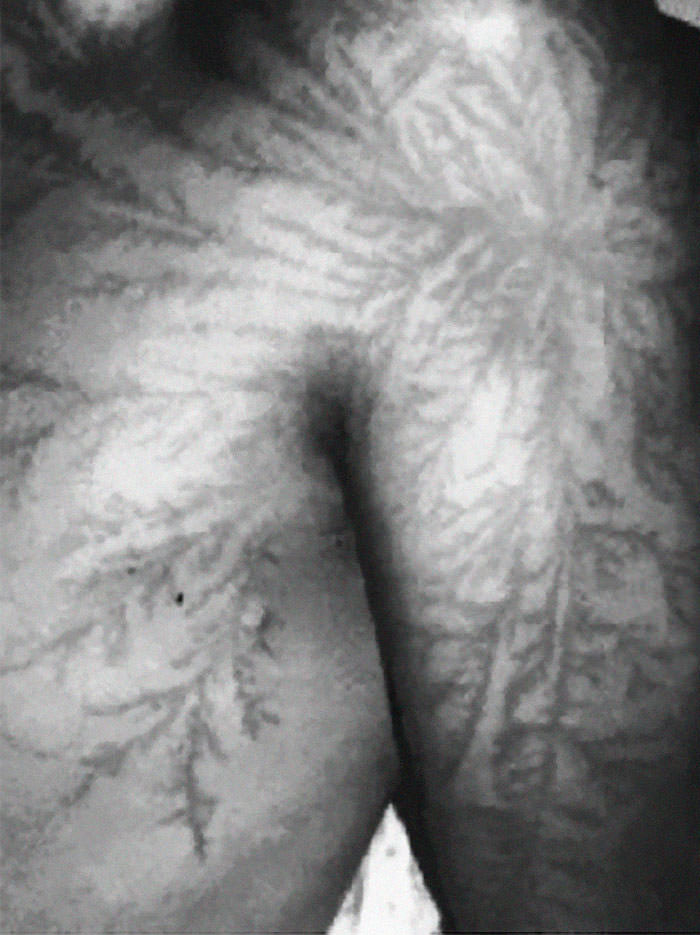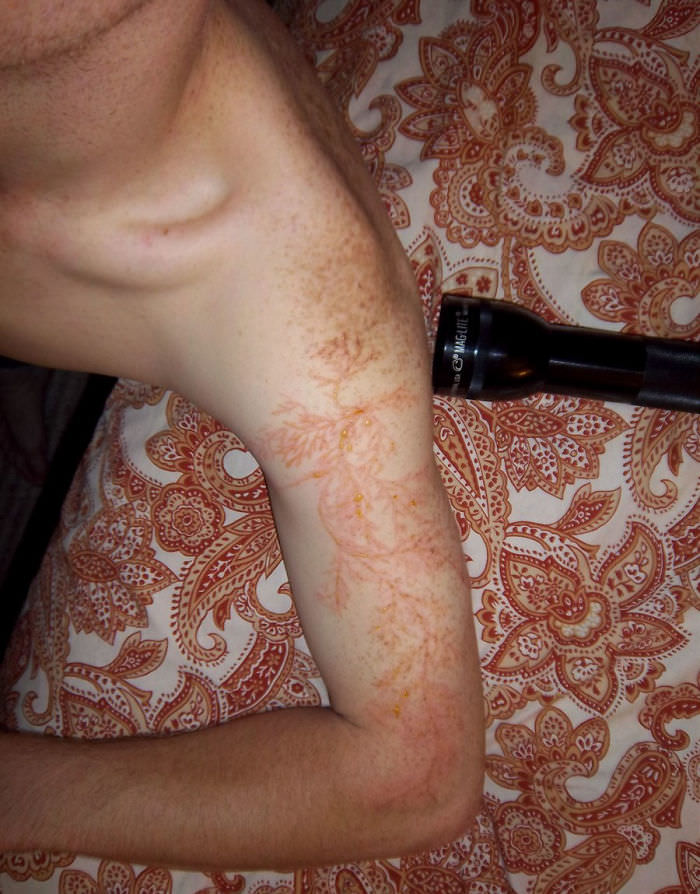The odds of getting struck by lightning in your lifetime are about 1 in 12,000, but every once in a while, a human will provide an attractive target for lightning to unleash its energy upon. Each year, roughly 500 people are struck by lightning. About 90 per cent of those people survive.
How lightning forms
Though scientists are still unsure what causes this phenomenon, they believe that ice particles bumping together inside clouds generate an excess negative charge that collects at the bottom. Electrons in the ground beneath this charge can be repelled by its powerful charge, causing the ground beneath it to become positively charged.
There is an intense attraction between the cloud, and the ground as an insanely strong electrical field roils in the cloud above. The runaway force that discharges this field is lightning. At nearly 300,000 kilometres per hour, it hits the ground with an energy of 300 kV, up to 150 times that of an industrial shock. Even a nuclear reactor can’t match its power. Lightning hits the ground and creates a trail of plasma that fills the sky with those zigzags of blueish white light that we see as lightning.
What happens to the body when struck by lightning?
Lighting short-circuits the tiny electrical signals that run the heart, lungs, and nervous system when it enters your body. A cardiac arrest, seizures, brain injury, spinal cord damage, or amnesia could result. Your eyes can be damaged by the blistering heat, light, and electricity. For instance, you can develop cataracts, a clouding of your lenses, due to holes causing in your retina. Males can also experience impotence and a general decrease in libido because lightning can cause these problems.
Lightning can force blood cells from your capillaries into your epidermis as it moves toward the surface of the body. Any metal you’re wearing can also become hot, causing third-degree burns. You can also vaporize sweat and rain rapidly. Steam explosions can even blow off people’s clothes or shoes, leaving them nearly naked.
Lightning strikes can, however, sometimes result in strange superpowers. According to the University of Miami, neuroscientist Berit Brogaard, an orthopaedic surgeon struck by lightning, developed an urge to learn piano after lightning struck. Since the strike, he began hearing music in his head that he composed. He gave up his career as a surgeon after a few months and became a classical musician. Scientists are baffled by this type of phenomenon.
A theory being tested by Brogaard is that cell death caused by being struck by lightning might cause a one-time release of neurotransmitters in the brain. It makes it possible to reach previously inaccessible brain areas through the rewiring of neurons.
Here below are some people who survived the lightning, and they have lightning scars on their bodies.




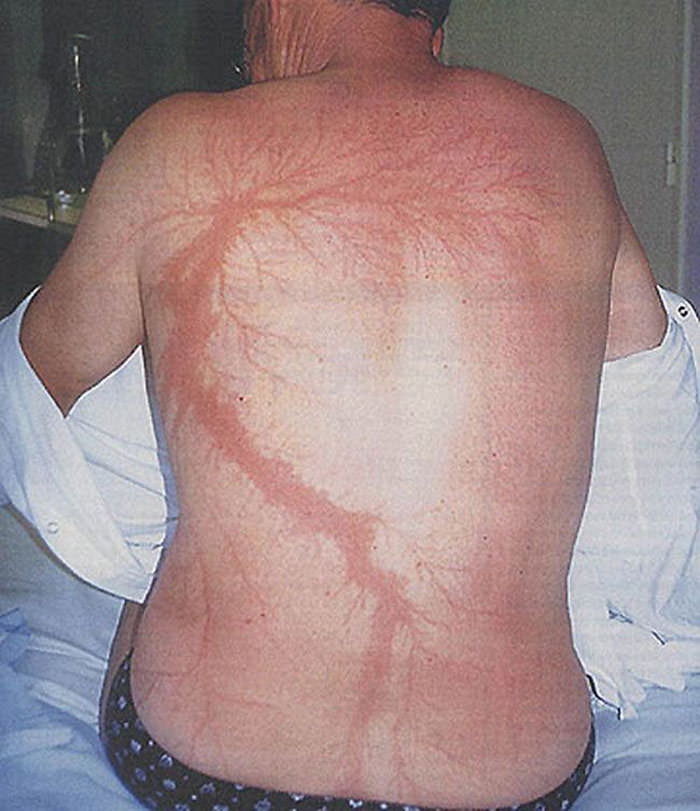


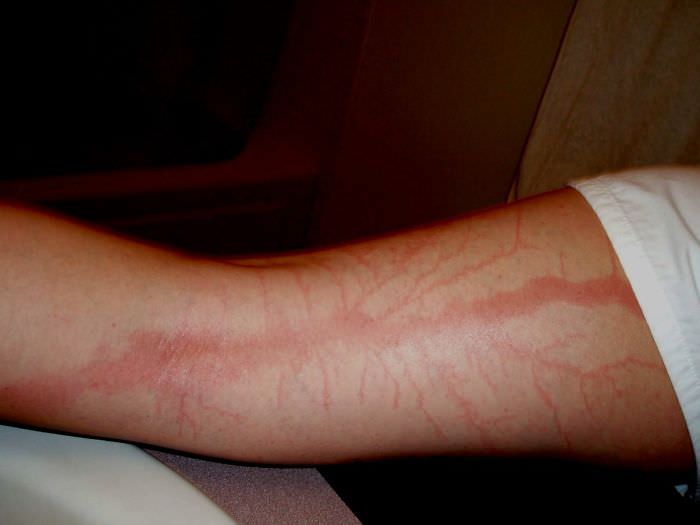
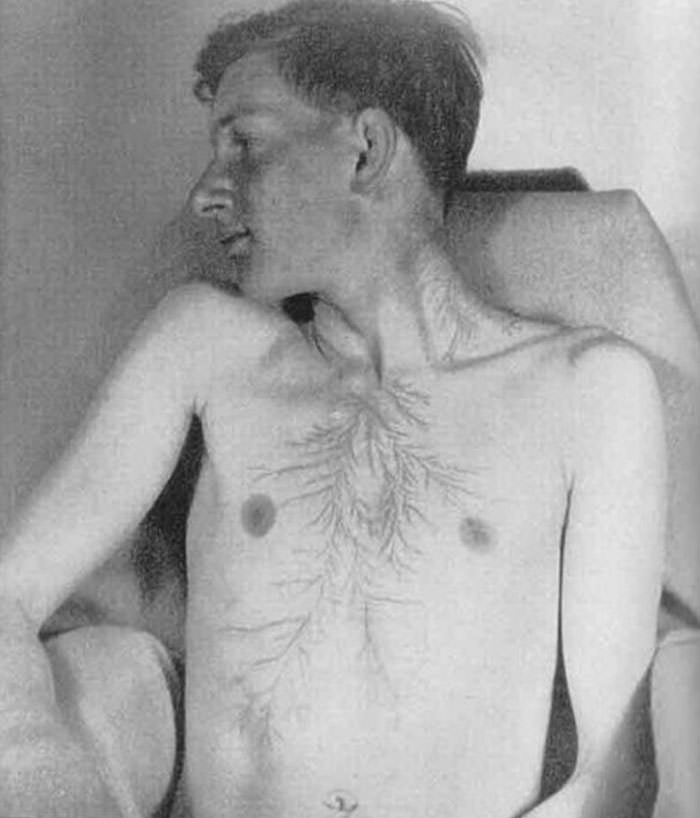
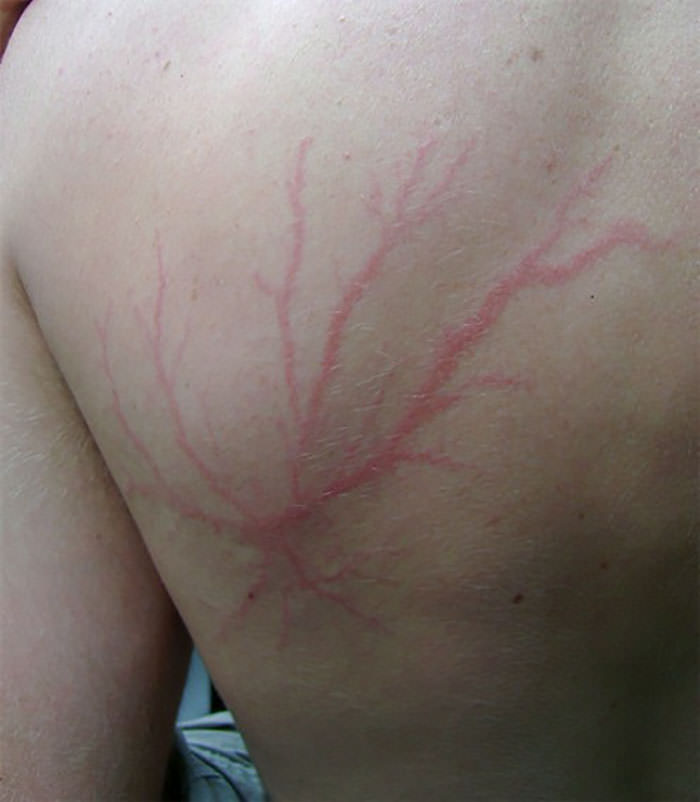
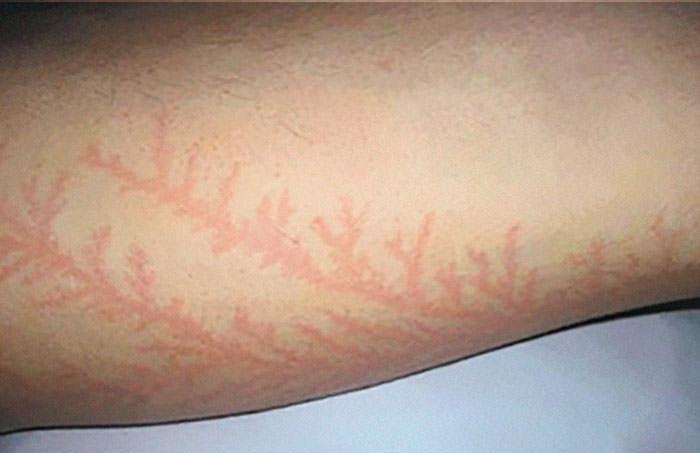



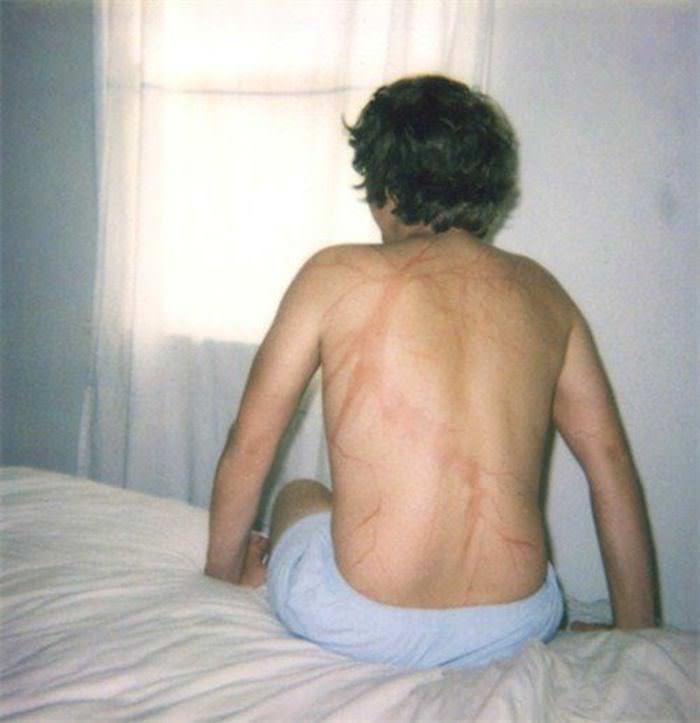
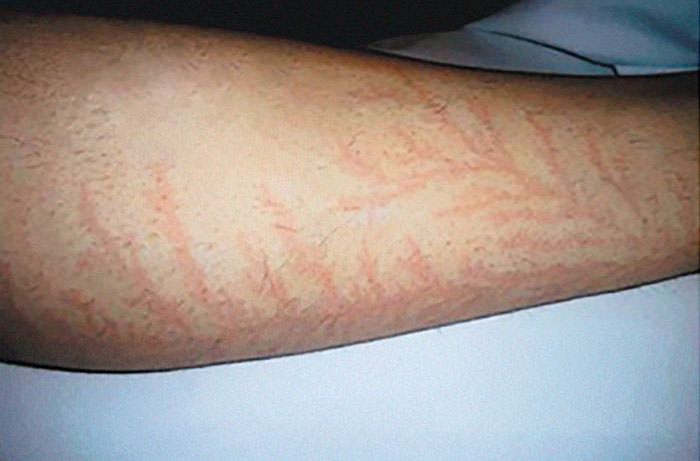
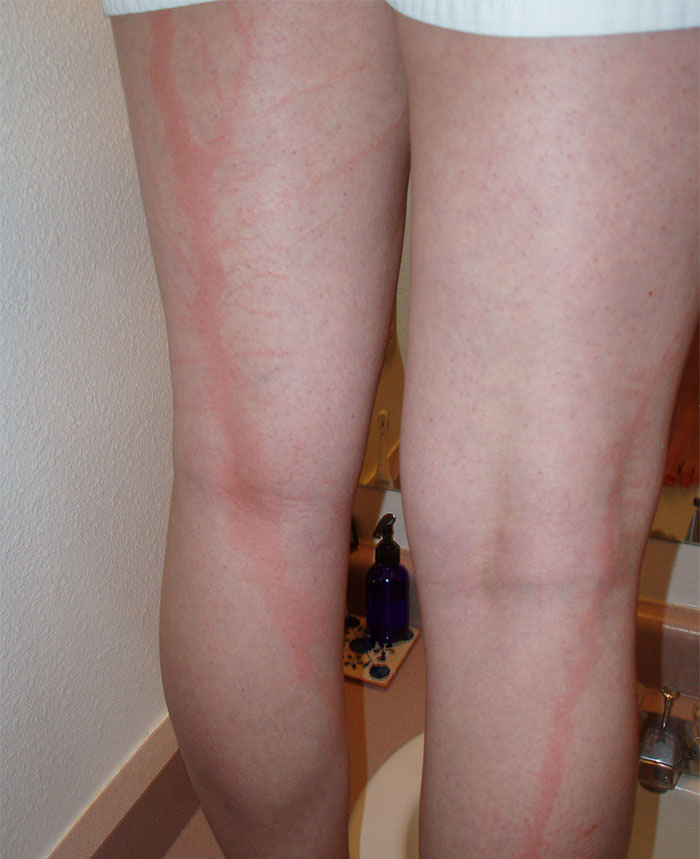
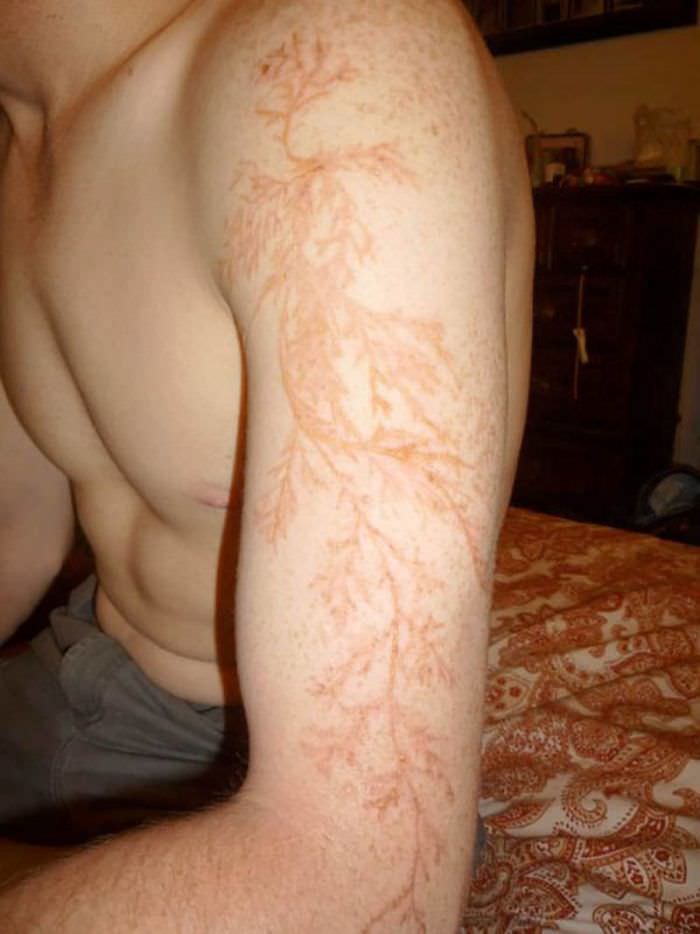
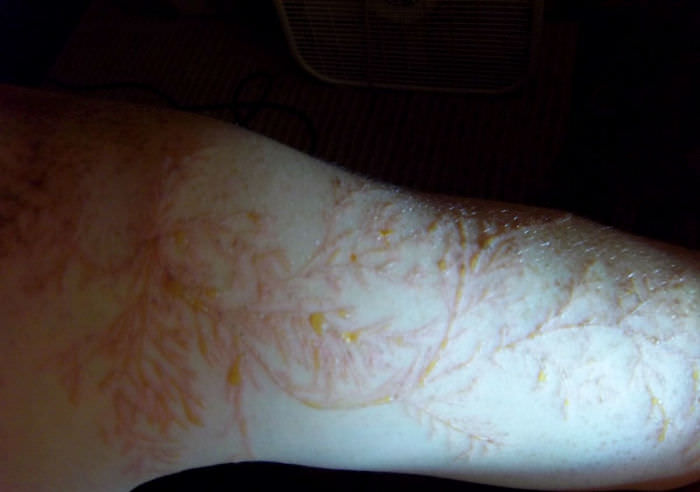
![“I just came back inside like nothing was wrong. Umm…my arm was sore. [It was] maybe an hour before I saw the marks”](https://interestingmag.com/wp-content/uploads/2021/07/Lightning_Scars_18.jpg)




